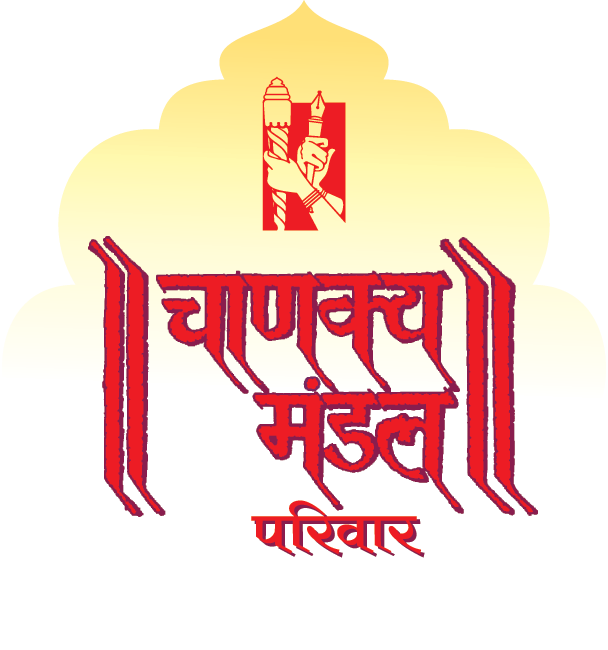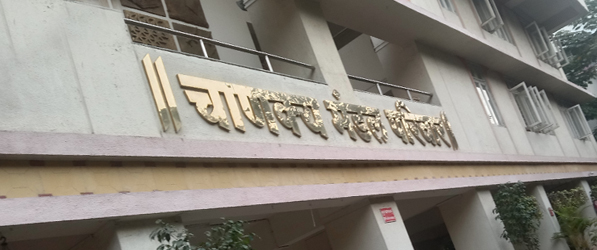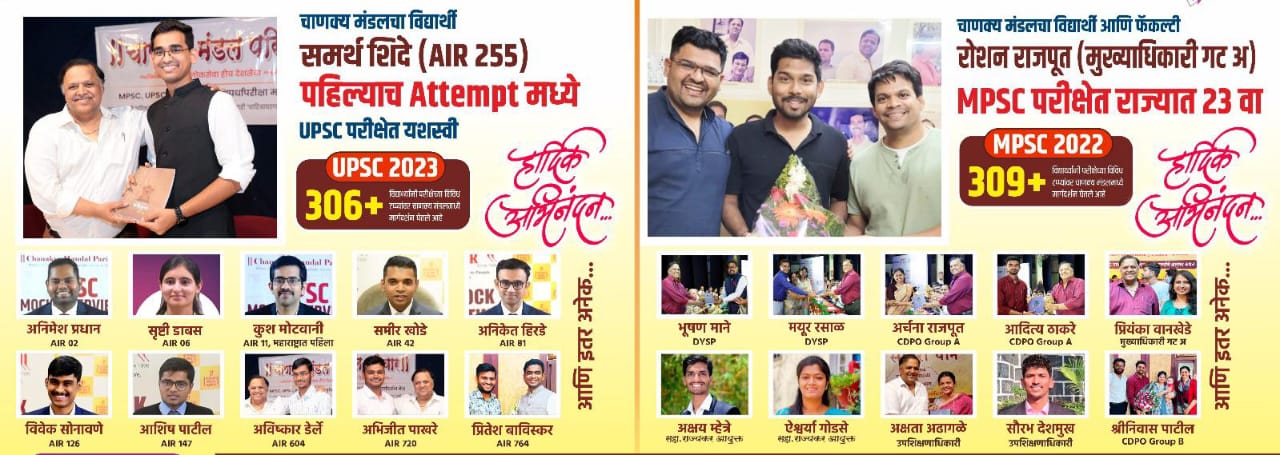Why “Chanakya”?
Arya Chanakya: Perhaps the pioneering prime bureaucrat- scholar. The thinker who realized the dangers of foreign invasion. Chanakya Mandal Pariwar has tried to awaken a corrupt exploitative, anti-people and inefficient regime. When the power-drunk corrupt regime refused to wake up, he sacrificed his career, went into wilderness organized and inspired the young generation from the commonest of the common strata of society.
He affected the political revolution which unified India and repulsed the foreign invasion. Having achieved all this he renounced all positions of power and wrote the eternal treatise ‘Artha Shastra’.
AGRICULTURE
PAPER I
Ecology and its relevance to man, natural resources, their sustainable management and conservation. Physical and social environment as factors of crop distribution and production. Agro ecology; cropping pattern as indicators of environments. Environmental pollution and associated hazards to crops, animals and humans. Climate change—International conventions and global initiatives. Green house effect and global warming. Advance tools for ecosystem analysis—Remote Sensing (RS) and Geographic Information Systems (GIS).
Cropping patterns in different agro-climatic zones of the country. Impact of high-yielding and short-duration varieties on shifts in cropping patterns. Concepts of various cropping, and farming
systems. Organic and Precision farming. Package of practices for production of important cereals, pulses, oil seeds, fibres, sugar, commercial and fodder crops.
Important features, and scope of various types of forestry plantations such as social forestry, agroforestry, and natural forests : Propagation of forest plants. Forest products. Agro-forestry and value addition. Conservation of forest flora and fauna.
Weeds, their characteristics, dissemination and association with various crops; their
multiplications; cultural, biological, and chemical control of weeds.
Soil—physical, chemical and biological properties. Processes and factors of soil formation. soils of
India. Mineral and organic constituents of soils and their role in maintaining soil productivity. Essential
plant nutrients and other beneficial elements in soils and plants. Principles of soil fertility, soil testing
and fertiliser recommendations, integrated nutrient management Biofertilizers. Losses of nitrogen in soil,
nitrogen-use efficiency in submerged rice soils, nitrogen fixation in soils. Efficient phosphoruse and
potassium use. Problem soils and their reclamation. Soil factors affecting green house gas emission.
Soil conservation, integrated watershed management. Soil erosion and its management. Dry land agriculture and its problems. Technology for stabilising agriculture production in rainfed areas.
Water-use efficiency in relation to crop production, criteria for scheduling irrigations, ways and means of reducing run-off losses of irrigation water. Rainwater harvesting. Drip and sprinkler irrigation.
Drainage of water-logged soils, quality of irrigation water, effect of industrial effluents on soil and water
pollution. Irrigation projects in India
Farm management, scope, importance and characteristics, farm planning. Optimum resource use
and budgeting. Economics of different types of farming systems. Marketing management strategies for
development, market intelligence. price fluctuations and their cost; role of co-operatives in agricultural
economy; types and systems of farming and factors affecting them. Agricultural price policy. Crop
Insurance.
Agricultural extension, its importance and role, methods of evaluation of extension programmes,
socio-economic survey and status of big, small and marginal farmers and landless agricultural labourers;
Training programmes for extension workers. Role of Krishi Vigyan Kendra’s (KVK) in dissemination of
Agricultural technologies. Non-Government Organisation (NGO) and self-help group approach for rural
development.
PAPER II
Cell structure, function and cell cycle. Synthesis, structure and function of genetic material. Laws
of heredity. Chromosome structure, chromosomal aberrations, linkage and cross-over, and their
significance in recombination breeding. Polyploidy, euploids and aneuploids. Mutation—and their role in
crop improvement. Heritability, sterility and incompatibility, classification and their application in crop
improvement. Cytoplasmic inheritance, sex-linked, sex-influenced and sex-limited characters.
History of plant breeding. Modes of reproduction, selfing and crossing techniques. Origin, evolution
and domestication of crop plants, center of origin, law of homologous series, crop genetic resources—
conservation and utilization. Application of principles of plant breeding, improvement of crop plants.
Molecular markers and their application in plant improvement. Pure-line selection, pedigree, mass and
recurrent selections, combining ability, its significance in plant breeding. Heterosis and its exploitation.
Somatic hybridization. Breeding for disease and pest resistance. Role of interspecific and intergeneric
hybridization. Role of genetic engineering and biotechnology in crop improvement Gernetically modified
crop plants.
Seed production and processing technologies. Seed certification, Seed testing and storage. DNA
finger printing and seed registration. Role of public and private sectors in seed production, and
marketing. Intellectual Property Rights (IPR) issues, WTO issues and its impact on Agriculture.
Principles of Plant Physiology with reference to plant nutrition, absorption, translocation and
metabolism of nutrients. Soil-water-plant relationship.
Enzymes and plant pigments; photosynthesis—modern concepts and factors affecting the process,
aerobic and anaerobic respiration; C3, C4 and CAM mechanisms. Carbohydrate, protein and fat
metabolism. Growth and development; photoperiodism and vernalization. Plant growth substances and
their role in crop production. Physiology of seed development and germination; dormancy. Stress
physiology—draught, salt and water stress.
Major fruits, plantation crops, vegetables, spices and flower crops. package practices of major
horticultural crops. Protected cultivation and high tech horticulture. Post-harvest technology and value
addition of fruits and vegetables. Landscaping and commercial floriculture. Medicinal and aromatic
plants. Role of fruits and vegetables in human nutrition.
Diagnosis of pests and diseases of field crops, vegetables, orchard and plantation crops and their economic importance. Classification of pests and diseases and their management. Intergrated pest and
diseases management. Storage pests and their management. Biological control of pests and diseases.
Epidemiology and forecasting of major crop pests and diseases. Plant quarantine measures. Pesticides,
their formulation and modes of action.
Food production and consumption trends in India. Food security and growing population—vision
2020. Reasons for grain surplus. National and International food policies. Production, procurement,
distribution constraints. Availability of foodgtrains, per capita expenditure on food. Trends in poverty,
Public Distribution System and Below Poverty Line population, Targeted Public Distribution System (PDS),
policy implementation in context to globalization. Processing constraints. Relation of food production to
National Dietary Guidelines and food consumption pattern. Food based dietary approaches to eliminate
hunger. Nutrient deficiency—Micro nutrient deficiency : Protein Energy Malnutrition or Protein Calorie
Malnutrition (PEM or PCM), Micro nutrient deficiency and HRD in context of work capacity of women and
children. Food grain productivity and food security.
 CTS
CTS  Donate
Donate 



